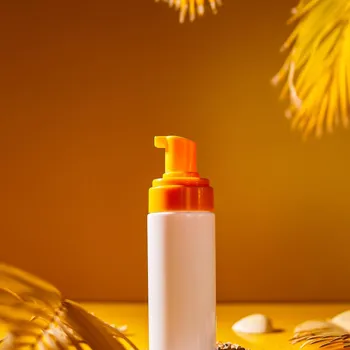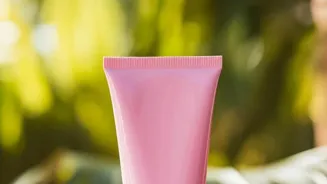Unveiling the Power of Sunscreen: Your Guide to Radiant Skin. Discover the secrets to flawless skin
In a country like India, where the sun shines bright almost all year round, sunscreen isn't just a beach
day essential; it's an everyday necessity. Many tend to believe it's only needed when stepping out for extended periods or when the sun feels intensely hot.
However, dermatologists insist that consistent sunscreen use is the cornerstone of healthy, youthful skin, regardless of the weather. Let's dive deep into understanding sunscreen, its benefits, and how to choose the right one for your precious skin.
Why Sunscreen is Your Skin's Best Friend
Think of sunscreen as a protective shield against the sun's harmful ultraviolet (UV) rays. These rays, even on cloudy days, can penetrate your skin and cause significant damage over time. The two main types of UV rays we need to worry about are UVA and UVB.
UVB rays are primarily responsible for sunburn, the immediate painful effect everyone associates with sun exposure. UVA rays, however, penetrate deeper into the skin and are the main culprits behind premature aging, wrinkles, and age spots.
Both UVA and UVB rays contribute to the risk of skin cancer, making sunscreen a critical tool in prevention. Using sunscreen everyday will block against the harmful rays and give a protective cover to the skin.
Sunscreen isn't just for preventing sunburn.
The daily use of sunscreen is about protecting your skin over the long term. Think of it as preventative skincare. By shielding your skin from UV damage, you're significantly reducing your risk of premature aging.
This means fewer wrinkles, less discoloration (like sunspots and uneven skin tone), and a generally more youthful appearance for a longer period.
Many expensive anti-aging creams promise dramatic results, but sunscreen delivers noticeable benefits with consistent use, often at a fraction of the cost. Plus, protecting your skin from sun damage helps maintain its natural elasticity and collagen production, keeping it plump and firm.
Moreover, sun exposure can worsen existing skin conditions like hyperpigmentation, melasma, and acne. Sunscreen helps prevent these conditions from flaring up and becoming more pronounced.
Even if you're already diligent about other aspects of your skincare routine, such as cleansing, moisturizing, and using serums, skipping sunscreen leaves your skin vulnerable to the damage UVA and UVB rays can inflict.
It's like building a house with a strong foundation but leaving the roof open to the elements. Sunscreen is the essential final step that seals the deal, protecting your investment in your skin's health and appearance.
So, make sunscreen a non-negotiable part of your daily routine, regardless of the weather or if you're spending the day indoors.
Decoding Sunscreen Labels: SPF and Broad Spectrum
When you browse through the sunscreen aisle, you'll undoubtedly come across terms like "SPF" and "broad spectrum.
" Understanding what these terms mean is crucial for choosing the right product. SPF, or Sun Protection Factor, measures how well a sunscreen protects you from UVB rays, the ones that cause sunburn. The higher the SPF number, the more protection it offers.
For example, SPF 30 blocks about 97% of UVB rays, while SPF 50 blocks about 98%. While there's a slight difference between the two, dermatologists generally recommend using at least SPF 30 for adequate protection. Remember that SPF is not linear.
Therefore, SPF 100 doesn't offer twice the protection of SPF 50; it only provides slightly more.
While SPF focuses on UVB protection, "broad spectrum" indicates that the sunscreen protects against both UVA and UVB rays.
As we discussed earlier, both types of UV rays contribute to skin damage and increase the risk of skin cancer. Therefore, it's essential to choose a sunscreen that is labeled "broad spectrum" to ensure comprehensive protection.
Some sunscreens might only protect against UVB rays, leaving you vulnerable to the harmful effects of UVA rays. Always double-check the label before making a purchase. Using broad spectrum sunscreen reduces the chances of face getting affected by UV rays.
It is important to note that reapplying sunscreen is as crucial as choosing the right SPF and broad-spectrum protection. Sunscreen's effectiveness diminishes over time, especially if you're sweating or swimming.
Ideally, you should reapply sunscreen every two hours, or immediately after swimming or excessive sweating. Don't forget to apply sunscreen to oft-neglected areas like your ears, neck, and the back of your hands. Consistency is key when it comes to sunscreen use.
Even the best sunscreen won't provide adequate protection if it's not applied correctly and reapplied regularly. Incorporating sunscreen application into your daily routine will ensure your skin is shielded from the sun's harmful rays, keeping it healthy and youthful for years to come.
Choosing the Right Sunscreen for Your Skin Type
Just like you choose moisturizers and cleansers based on your skin type, selecting the right sunscreen is also important for optimal results. If you have oily or acne-prone skin, look for oil-free or non-comedogenic sunscreens.
These formulations are designed to not clog pores and prevent breakouts. Gel-based or lightweight lotions are also good options for oily skin as they tend to feel less heavy and greasy on the skin, promoting a more matte finish.
Many sunscreens specifically cater to oily skin, offering a range of formulations that provide effective sun protection without exacerbating existing skin issues. You can check online and compare the sunscreens. Use the one which suits you the best.
For those with dry skin, hydrating sunscreens are your best bet. Look for sunscreens that contain moisturizing ingredients like hyaluronic acid, glycerin, or ceramides. Cream-based sunscreens tend to be more hydrating and can help combat dryness and keep your skin feeling supple.
It will give your skin a smoother feel and protect from other things that affect your skin and texture. Sunscreens formulated for dry skin often come with added benefits such as soothing and calming properties, which can help alleviate any discomfort or itching associated with dryness.
If you have sensitive skin, opt for mineral sunscreens containing zinc oxide or titanium dioxide. These ingredients are gentle on the skin and less likely to cause irritation or allergic reactions compared to chemical sunscreens.
Mineral sunscreens work by creating a physical barrier on the skin's surface, reflecting UV rays away, while chemical sunscreens absorb UV rays and convert them into heat. Look for sunscreens labeled as "fragrance-free" and "paraben-free" to minimize the risk of irritation.
Always patch-test a new sunscreen on a small area of skin before applying it to your entire face and body to check for any adverse reactions.
Sunscreen Application: The Right Way to Use It
Applying sunscreen correctly is just as important as choosing the right product.
Most people don't use enough sunscreen, which significantly reduces its effectiveness. As a general rule, you should use about one ounce (a shot glass full) of sunscreen to cover your entire body. For your face, aim for about a half-teaspoon's worth.
Apply sunscreen generously and evenly, making sure to cover all exposed areas of skin, including your ears, neck, and the back of your hands. A good amount of sunscreen is required.
Apply sunscreen 15-30 minutes before sun exposure to allow it to fully absorb into your skin.
This is especially important for chemical sunscreens, which need time to form a protective barrier. Don't forget to reapply sunscreen every two hours, or immediately after swimming or sweating.
Even waterproof or water-resistant sunscreens need to be reapplied regularly to maintain their effectiveness. Setting a timer as a reminder to reapply can be helpful, especially if you're spending an extended period of time outdoors. Sunscreen should be applied with precision.
Don't forget about areas that are often overlooked, such as the hairline, the tops of your feet, and behind your knees. These areas are just as susceptible to sun damage as any other part of your body.
Lip balm with SPF is also essential for protecting your delicate lips from sunburn and premature aging. Consider using a sunscreen stick for easy application to these smaller, harder-to-reach areas.
Remember, consistent and diligent sunscreen use is key to maintaining healthy, youthful skin and reducing your risk of skin cancer.
Beyond Sunscreen: Additional Sun Protection Measures
While sunscreen is a crucial component of sun protection, it's not the only measure you should take.
Wearing protective clothing, such as long sleeves, pants, and wide-brimmed hats, can provide an extra layer of defense against harmful UV rays. Choose tightly woven fabrics that offer better sun protection.
Darker colors tend to absorb more UV rays, providing slightly better protection than lighter colors. Many outdoor clothing brands offer clothing with a UPF (Ultraviolet Protection Factor) rating, which indicates how well the fabric blocks UV rays.
Seek shade, especially during peak sun hours, which are typically between 10 a.m. and 4 p.m. When possible, plan outdoor activities for earlier in the morning or later in the afternoon when the sun's rays are less intense.
Trees, umbrellas, and other structures can provide shade and help reduce your exposure to UV rays. Remember that UV rays can still penetrate through clouds. So, it's important to take sun protection measures even on cloudy days. Stay covered with clothes to avoid direct sun exposure.
Sunglasses are also essential for protecting your eyes from UV damage. Prolonged exposure to UV rays can increase your risk of cataracts, macular degeneration, and other eye problems. Choose sunglasses that block 99-100% of UVA and UVB rays.
Wrap-around sunglasses provide the best protection as they block UV rays from entering from the sides. Make sure your children also wear sunglasses whenever they're outdoors. Sun protection is important for people of all ages.
Sunscreen Myths Debunked
There are many misconceptions surrounding sunscreen that can lead to improper use and inadequate protection. Let's dispel some common sunscreen myths:
Myth: "I don't need sunscreen on cloudy days."
Fact: UV rays can penetrate clouds, so you still need sunscreen even when it's overcast.
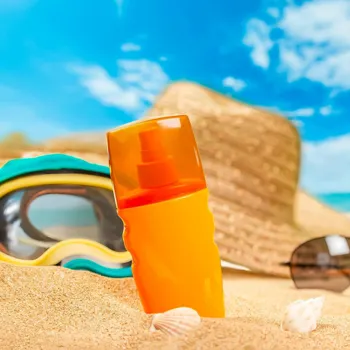
Myth: "I don't need sunscreen if I have dark skin."
Fact: While darker skin tones have more melanin, which provides some natural protection from the sun, everyone is susceptible to sun damage and skin cancer. Sunscreen is essential for all skin tones.
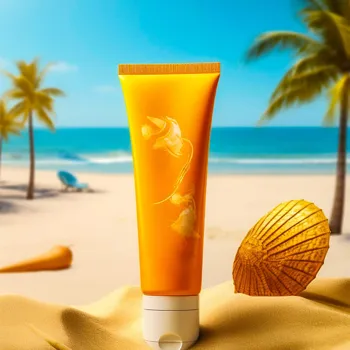
Myth: "A higher SPF provides significantly more protection."
Fact: SPF 30 blocks about 97% of UVB rays, while SPF 50 blocks about 98%. The difference is minimal. Focus on using a broad-spectrum sunscreen and reapplying it regularly.

Myth: "Sunscreen is only needed in the summer."
Fact: UV rays are present year-round, so sunscreen is necessary in all seasons.
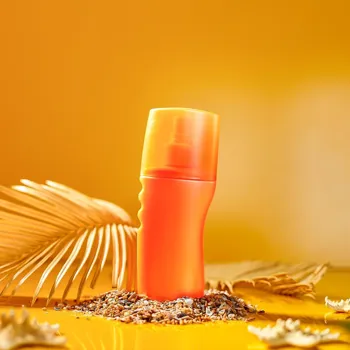
Myth: "I don't need sunscreen because my makeup has SPF."
Fact: Makeup with SPF often doesn't provide enough coverage or protection. It's best to apply a dedicated sunscreen underneath your makeup for adequate protection.
By understanding the facts about sunscreen and dispelling common myths you can make informed choices about sun protection and keep your skin healthy and youthful for years to come.
In conclusion, sunscreen is your best friend in the journey to attain youthful skin. So choose wisely and stay beautiful!
